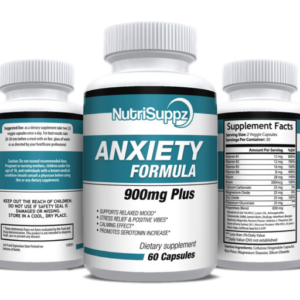28 Aug Understanding the Natural Stress Response and Its Link to Anxiety
Understanding the Natural Stress Response and Its Link to Anxiety

Our bodies are equipped with a natural stress response system designed to protect us from perceived threats. However, when this system becomes overstimulated, it can contribute to anxiety and impact overall well-being. This blog post explores the natural stress response, how it relates to anxiety, and strategies to manage and mitigate its effects.
The Natural Stress Response: An Overview
The natural stress response, often referred to as the “fight-or-flight” response, is a physiological reaction to perceived threats or stressors. This response is initiated by the autonomic nervous system, specifically the sympathetic nervous system, which prepares the body to either confront or flee from danger. Key changes during this response include increased heart rate, elevated blood pressure, and heightened alertness.
How the Stress Response Contributes to Anxiety
While the stress response is crucial for survival, its chronic activation can lead to anxiety. When the stress response is triggered frequently or remains activated for extended periods, it can create a state of constant alertness and unease. This persistent activation disrupts the balance between the sympathetic and parasympathetic nervous systems, leading to feelings of anxiety and nervousness.
The Role of Stress Hormones
Stress hormones such as cortisol and adrenaline play a significant role in the stress response. Cortisol, released by the adrenal glands, helps regulate various functions, including metabolism and immune response. However, prolonged exposure to high cortisol levels can impair brain function and contribute to anxiety. Adrenaline, on the other hand, prepares the body for immediate action but can lead to persistent feelings of tension and restlessness when released in excess.
Managing the Natural Stress Response
To manage the natural stress response and reduce anxiety, several strategies can be effective. Regular physical exercise is one of the most beneficial approaches. Exercise helps regulate stress hormones, improve mood, and promote overall relaxation. Additionally, practicing mindfulness and relaxation techniques, such as deep breathing and meditation, can help calm the nervous system and restore balance.
Maintaining a healthy lifestyle also supports stress management. A balanced diet rich in essential nutrients can enhance the body’s ability to cope with stress, while adequate sleep is crucial for overall mental and physical health.
Seeking Professional Support
For those struggling with chronic anxiety or difficulty managing stress, seeking professional support can be beneficial. Therapies such as cognitive-behavioral therapy (CBT) can help individuals develop effective coping strategies and address underlying causes of anxiety. Additionally, a healthcare provider may recommend supplements or medications to support stress management and overall well-being.
Conclusion
Understanding the natural stress response and its connection to anxiety is essential for managing both mental and physical health. By employing effective stress management techniques and maintaining a healthy lifestyle, it is possible to reduce the impact of the stress response and improve overall well-being. At NutriSuppz, we offer resources and products designed to support stress management and promote a balanced, healthy lifestyle. Explore our offerings to find solutions that work for you.



No Comments